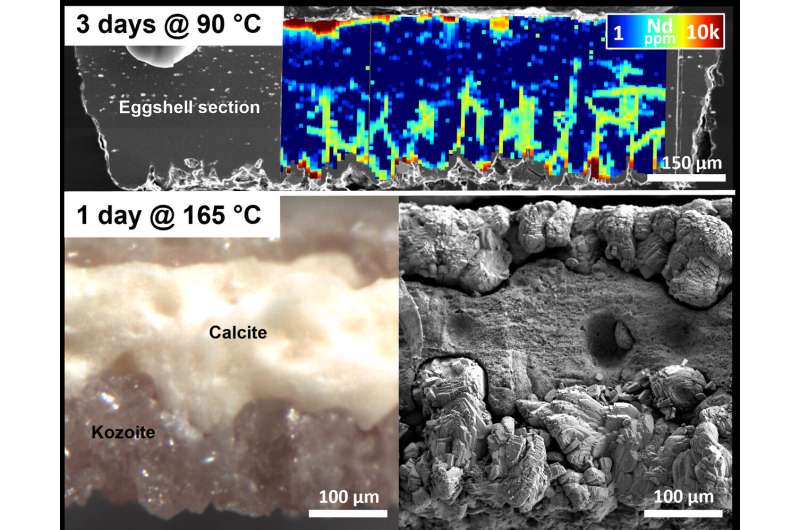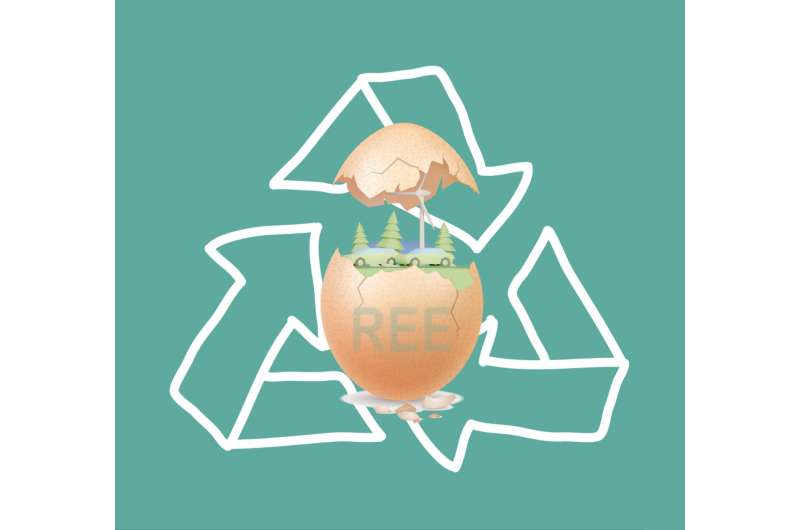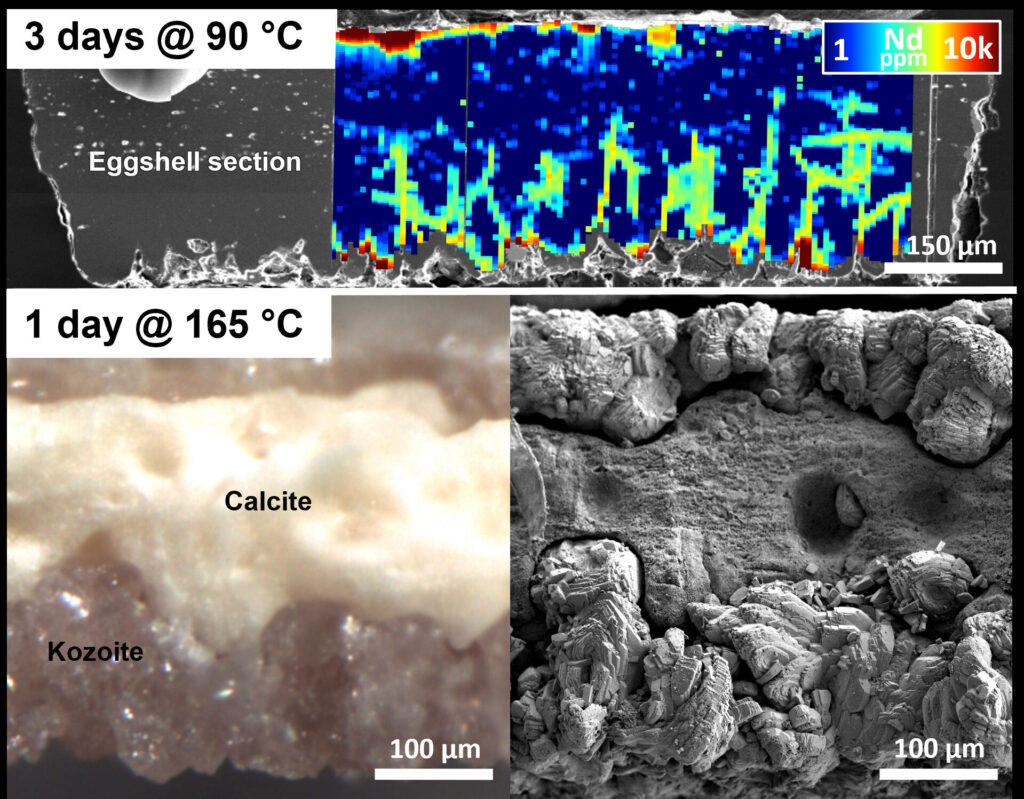
Composite image using microscopy and high-resolution spectroscopy showing the processes of absorption and replacement of rare earth elements in the eggshell. Credit: Prof. Juan Diego Rodriguez-Blanco, Trinity College Dublin
A collaborative team of researchers has made an unexpected discovery with the potential to make a significant impact on the sustainable recovery of rare earth elements (REEs), which are in increasing demand for use in green energy technologies. The team found that simple eggshell waste could recover REES from water, providing a new, environmentally friendly method of extracting them.
The researchers, from Trinity College Dublin’s School of Natural Sciences and iCRAG, Ireland’s Research Center in Applied Geosciences, have just published their findings in the journal. ACS Omega.
REEs, which are essential to technologies used in electric cars and wind turbines, for example, are in growing demand but in relatively short supply. As a result, scientists must find new ways to extract them from the environment – and in sustainable ways, with current often harmful methods.
Here, researchers found that the calcium carbonate (calcite) in eggshells can effectively absorb and separate these valuable REEs from water.
The researchers placed the eggshells in REE-containing solutions at varying temperatures from 25°C to a scorching 205°C and for varying periods of time up to three months. They found that elements could enter the eggshells through diffusion across the boundaries of calcite and the organic matrix, and, at higher temperatures, that rare earths built new minerals on the surface of the eggshell.

Conceptual framework chart. Credit: Prof. Juan Diego Rodriguez-Blanco, Trinity College Dublin
At 90°C, the eggshell surface helped recover formations of a rare earth compound called cozoites. As things heated up, the eggshells underwent a complete transformation with the calcite shells dissolving and being replaced by polycrystalline cozoites. And at the higher temperature of 205°C, this mineral gradually transitioned to bastnasite, the stable rare earth carbonate mineral used by industry to extract REE for technological applications.
This innovative method suggests that waste eggshells can be reused as a low-cost, environmentally friendly material to help meet the growing demand for REES, as eggshells trap distinct rare earths within their structure. over time.
The main author Dr. Remi Rateau says: “This study presents a potential innovative use of waste that not only provides a sustainable solution to the problem of rare earth element recovery, but also complies with the principles of circular economy and waste valuation.”
The main investigator, Prof. Juan Diego Rodriguez-Blanco, highlighted the broader implications of the findings, adding, “By transforming eggshell waste into a valuable resource for rare earth recovery, we address critical environmental concerns associated with traditional extraction methods and we contribute to the development of greener technologies”.
More information:
Rémi Rateau et al, The use of eggshell waste calcite as a sorbent for the recovery of rare earth elements, ACS Omega (2024). DOI: 10.1021/acsomega.4c00931
Provided by Trinity College Dublin
citation: A ground-breaking discovery: Eggshell waste can recover rare earth elements needed for green energy (2024, June 5) retrieved June 6, 2024 from https://phys.org/news/2024-06- discovery-eggshell-recover-rare-earth .html
This document is subject to copyright. Except for any fair agreement for study or private research purposes, no part may be reproduced without written permission. The content is provided for informational purposes only.


